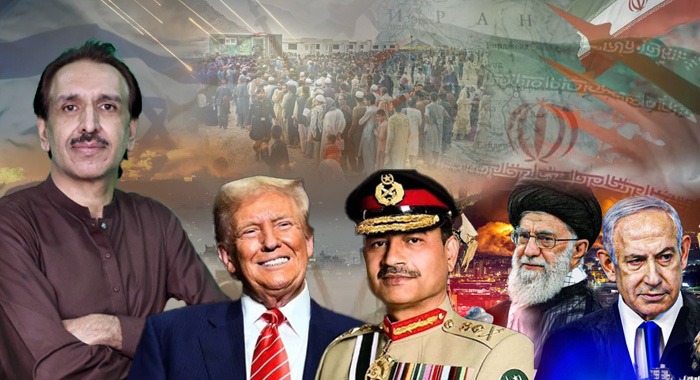Field Marshal Syed Asim Munir’s recent visit to the United States marked a pivotal moment in Pakistan’s diplomatic re-engagement with Washington. His meeting with former U.S. President Donald Trump was unprecedented, not only in symbolism but in substance. For the first time in decades, a Pakistani Army Chief was hosted personally for a two-hour luncheon discussion by an American head of state, without the presence of a civilian counterpart. The message was clear: Pakistan’s strategic importance is once again being recognised at the highest levels in Washington.
Several key factors contributed to this shift. First, the myth of Pakistan’s global isolation, often pushed by Indian media and sections of the Western press, has now been exposed. Second, there has been growing discomfort in Washington over India’s double-dealing, particularly its deepening trade with China despite its supposed strategic alliance with the United States. Pakistan, with its critical geography and influence in Afghanistan and Central Asia, has become essential once again, especially in the face of renewed threats from ISIS and the complex U.S.-China rivalry.
It’s also important to note that Pakistan’s decisive reaction on May 10th in the face of Indian aggression played a significant role in altering perceptions. Donald Trump himself acknowledged Pakistan’s role in averting escalation between two nuclear-armed nations, further praising the leadership of Field Marshal Asim Munir. This direct and personal engagement laid the groundwork for broader strategic discussions, including the delicate balance between Iran and Israel.
Understanding the Iran-Israel Context
Though full details of the Trump-Munir meeting remain classified, informed sources confirm that Iran was a major point of discussion. The presence of Pakistan’s Interior Minister, National Security Advisor, and ISI Chief in the meeting indicated the seriousness of the agenda. Donald Trump reportedly admitted that Asim Munir knew more about Iran than anyone else in the room, recognising Pakistan’s nuanced position due to its shared 1,000-km border with Iran.
The conversation reportedly touched upon the potential fallout of any U.S. action against Iran. While hawkish elements in the West might push for conflict, Pakistan is believed to have advised restraint, suggesting that it should not be drawn into a war that does not serve its national interest.
Afghan Refugees: An Emerging Internal Threat
Beyond external diplomacy, one of the most alarming developments discussed in recent weeks relates to Pakistan’s internal security—specifically, the growing subversive activities linked to Afghan refugees. This issue is neither speculative nor exaggerated. What was once a humanitarian issue has now become a matter of national security.
In recent Iranian investigations following attacks on their soil, it was revealed that certain Afghan nationals, particularly former operatives from the Karzai and Ghani regimes—had been co-opted by RAW and Mossad. These individuals, now residing in Iran and Pakistan, are not ordinary refugees. They are trained agents who have continued their intelligence work under new patrons, playing direct roles in acts of espionage and sabotage.
Pakistan’s hospitality towards Afghan migrants spans over four decades. Despite this, a significant number of elements among these refugee populations have engaged in anti-state activities. These include links with terrorist outfits like the Tehreek-e-Taliban Pakistan (TTP) and facilitation of political unrest, including violent protests. Evidence also suggests that Afghan refugees played an enabling role in recent destabilisation efforts linked to certain political movements inside Pakistan.
India’s Growing Isolation and Desperation
India’s regional isolation is becoming more pronounced. Its relations with neighbours like Bangladesh, Sri Lanka, and China have deteriorated, while its aggression toward Pakistan continues unabated. At the same time, reports have surfaced of India’s intelligence agency RAW committing war crimes in Iran, further eroding New Delhi’s credibility on the international stage.
To compensate for its diminishing influence, India appears to be leveraging Afghan operatives as human assets to destabilise Pakistan and its neighbours. The tactic is not only desperate but also dangerously reckless. It risks further inflaming regional tensions and complicating the already fragile security architecture of South Asia.
Lessons from Iran, and What Pakistan Must Do Next
Iran’s recent crackdown on suspicious Afghan refugees involved in espionage should serve as a lesson for Pakistan. Tehran acted swiftly and decisively when its sovereignty was challenged. Pakistan, though traditionally lenient and humanitarian in its refugee policy, can no longer afford to ignore the growing threat posed by rogue elements within these communities.
Not all Afghan refugees are involved, and Pakistan’s policies have rightly differentiated between innocent migrants and those with hostile agendas. However, the presence of hostile actors among Afghan populations in Khyber Pakhtunkhwa, Balochistan, and Islamabad is a documented reality. Daily attacks on Pakistani security forces and installations underscore the cost of inaction.
The state is already moving toward a firmer stance. Crackdowns have begun, and background checks are intensifying. Pakistan must strike a careful balance, protecting genuine asylum seekers while identifying and neutralising foreign-backed infiltrators.
Field Marshal Asim Munir’s visit to the U.S. marks a diplomatic revival for Pakistan. But if that revival is to translate into stability and growth at home, the state must act decisively against threats emanating from within, especially those planted by foreign intelligence agencies among refugee populations.
Pakistan has shown immense tolerance and generosity. Now it must show resolve.





